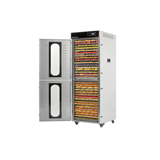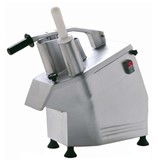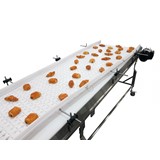Together the team have managed to discover a way to separate and purify the nutrients contained in manufacturing waste.
According to the Director of the University's Centre for Advanced Food Research (CAFR), Associate Professor Jim Hourigan, the innovation means Australian businesses will become world leaders in environmentally-sustainable food manufacturing, and have the potential to generate millions of dollars from what they currently throw away.
"Each year the Australian food manufacturing industry wastes billions of litres of potentially valuable material. This waste contains many 'goodies' - vitamins and minerals - that up until now have been too difficult or expensive to recover from food process streams," says Associate Professor Hourigan.
"Our challenge has been to devise a cost-effective food processing system that minimises waste and maximises the commercial use of these by-products.
"After 10 years of development and $2.5 million worth of funding from the Dairy Research Development Corporation, we've developed methods which recover and purify a wide range of components."
CAFR Research Fellow, Dr Rosalie Durham, says the process works by fractionation of the waste in four stages - using ion exchange, nanofiltration, chromatography and crystallisation - to isolate the useful 'fractions' or products.
"We've perfected the technique by separating minerals and nutrients from whey. Australian cheese manufacturers generate thousands of tonnes of whey a day, which traditionally is converted into low-value lactose, whey powder or discarded as waste," she says.
"Our system recovers high-value, refined white, pharmaceutical-grade lactose which is used in dried powder inhalers and other medicines, as well as recovering other soluble whey minerals and calcium salts."
"By adapting their existing processes, companies can receive a cut of the global functional food and nutraceutical markets, which have been valued at US $90 billion and continue to grow," added Associate Professor Hourigan.
It's a breakthrough that has excited scientists both here in Australia and overseas. It has been honoured with the Environmental Science Technology Sector Award for Excellence at the recent Knowledge Commercialisation Australasia Awards.
Food Science Australia's Dr Robert Sleigh says the technology, which has been patented worldwide, was born out of the advent of stronger environmental regulations requiring the food manufacturing industry to meet zero discharge standards and recover and re-use all the valuable components.
"Many of Australia's food manufacturing industries are located in regional areas that are experiencing punishing drought conditions. An added bonus of this technology means businesses can also recover and purify the water that is currently wasted in manufacturing. Our process recovers more water from the whey than is used in its treatment, which greatly reduces production costs, minimises the drain on water supply and improves the sustainability of the manufacturing industry," he says.
Associate Professor Hourigan says it's a fantastic example of the commercial potential of Australian scientific innovation.
"This sort of platform technology has the potential to be used to extract valuable substances from the waste of sugar, wine, fruit and vegetable processing," Associate Professor Hourigan says.
"These include peptides, fructo-oligosaccharides, natural flavours, pigments, anti-bacterial proteins, phenolic antioxidants, sugars, organic acids and mineral salts which are of great benefit to the pharmaceutical and health industries.
"The team is now in the process of looking for partners to extend the research and explore its full potential. We hope we can take this pilot-scale technology to full commercialisation in the not-too-distant future.
"We need to show food manufacturers they can have the best of both worlds and adopt environmentally-friendly food manufacturing processes and still make a profit."
The research team members are:
Associate Professor Jim Hourigan, Director Centre for Advanced Food Research, UWS
Dr Robert Sleigh, Senior Research Scientist, Food Science Australia
Dr Rosalie Durham, Research Fellow Centre for Advanced Food Research, UWS
Food Science Australia is Australia's largest food research organisation and a joint venture of the Australian Food Industry Service Centre (Afisc) and the Commonwealth Scientific & Industrial Research Organisation (CSIRO).












